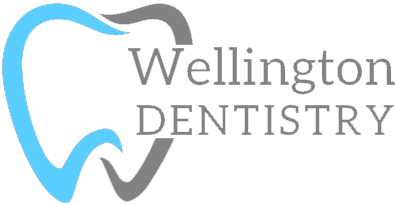
Is Tooth Extraction Necessary? Exploring Your Dental Options
Tooth extraction may be recommended for various reasons, which can include:
- Extraction of baby teeth: Sometimes, baby teeth require extraction if they do not naturally fall out.
- Extraction for orthodontic treatment: In certain orthodontic cases, tooth extraction may be necessary to create space for alignment.
- Extraction due to pain or infection: When a tooth is severely infected or causes significant pain, extraction may become a viable option.
- Extraction of a broken tooth: A tooth that is extensively damaged or broken may need to be extracted.
However, it’s important to note that tooth extraction isn’t always the sole solution. If you are experiencing tooth pain, we may have alternatives to provide relief while preserving your tooth. Timely detection is key.
If you are facing any of the following symptoms, please inform us promptly:
- Severe tooth pain.
- Pain that exacerbates with pressure or chewing.
- Jaw pain or stiffness.
- Swollen gums around the affected tooth or teeth.
- Indications of gum disease, such as discoloration, bleeding, or bad odor.
Early assessment and communication about your symptoms will help us determine the most appropriate treatment plan for your dental health and well-being.
The Treatment Plan: Your Guide to Tooth Extraction and Aftercare
When it comes to tooth extraction, our goal is to make the process as comfortable and efficient as possible. Here’s how we approach the treatment plan, from assessing your needs to post-extraction care:
Examination
Our experienced dentists conduct a thorough examination of your symptoms and discuss various treatment options to determine the most suitable course of action for your dental health.
Extraction
Depending on your dentist’s and your preference, a local anesthetic is administered to numb the area where the tooth will be extracted. Sedation options are also available if needed. Our oral surgeons employ minimally invasive techniques to ensure a gentle and efficient tooth removal process, prioritizing your comfort and speedy recovery.
Recovery & Aftercare
After the extraction, you will receive detailed aftercare instructions, including guidance on how to care for your healing mouth, what to expect during the recovery period, and what steps to take in case of complications. We are always here to address any additional concerns you may have and can schedule a follow-up appointment if needed.
The Cost of Dental Extraction in London: What to Expect
The cost of a dental extraction in London can vary depending on two factors, here’s a general overview of what you can anticipate:
Please note that providing an accurate quote over the phone is challenging, as the treatment plan must be tailored to your specific needs. Dental extractions generally fall into two categories, which can give you a better idea of potential costs:
1. Simple Tooth Extraction:
- This type of extraction is performed on visible teeth in the mouth and can be done by a general dentist using local anesthesia. The cost for a simple extraction is typically lower, especially when there are no complications. You are expected to pay between $215 to $230 in a simple tooth extraction.
2. Surgical Tooth Extraction:
- A surgical extraction is a more complex procedure performed by an oral surgeon, often at a dental surgery center. It involves the removal of teeth that cannot be easily accessed, such as those that have not fully erupted or have broken off at the gum line. Due to its complexity, surgical tooth extraction is associated with a higher cost, reflecting the careful consideration, delicate care, and expertise required. Here, you are expected to pay between $685 to $700.
Ultimately, the specific cost of your dental extraction will depend on your unique circumstances and treatment needs. We recommend scheduling an oral exam with us to determine the most accurate estimate for your extraction procedure.
Contact us today
to schedule an initial consultation & exam.
Your consultation will include an examination of everything from your teeth, gums and soft tissues to the shape and condition of your bite. Generally, we want to see how your whole mouth looks and functions. Before we plan your treatment we want to know everything about the health and aesthetic of your smile, and, most importantly, what you want to achieve so we can help you get there.
Frequently Asked Questions
Tooth extraction may be necessary for reasons such as severe tooth decay, advanced gum disease, crowding, infection, or to prepare for orthodontic treatment.
Tooth extraction is typically performed under local anesthesia, so you should not feel pain during the procedure. Some discomfort and swelling may occur afterward, but it can be managed with pain relievers.
The duration of a tooth extraction can vary but usually takes around 20-40 minutes for a simple extraction. More complex cases may take longer.
After a tooth extraction, it’s best to stick to soft foods like soups, yogurt, and mashed potatoes for the first few days. Avoid hot, spicy, or hard foods.
Smoking can interfere with the healing process and increase the risk of complications. It’s recommended to refrain from smoking for at least a few days after the procedure.
The initial recovery period typically lasts a few days to a week, but complete healing can take several weeks.
It’s best to avoid strenuous exercise for at least 24-48 hours after a tooth extraction to minimize the risk of complications.
The timing for dental implants or replacements varies based on individual healing. Your dentist will assess when it’s appropriate for you, usually several months after extraction when the site has healed adequately.
Google Verified Patient Reviews






